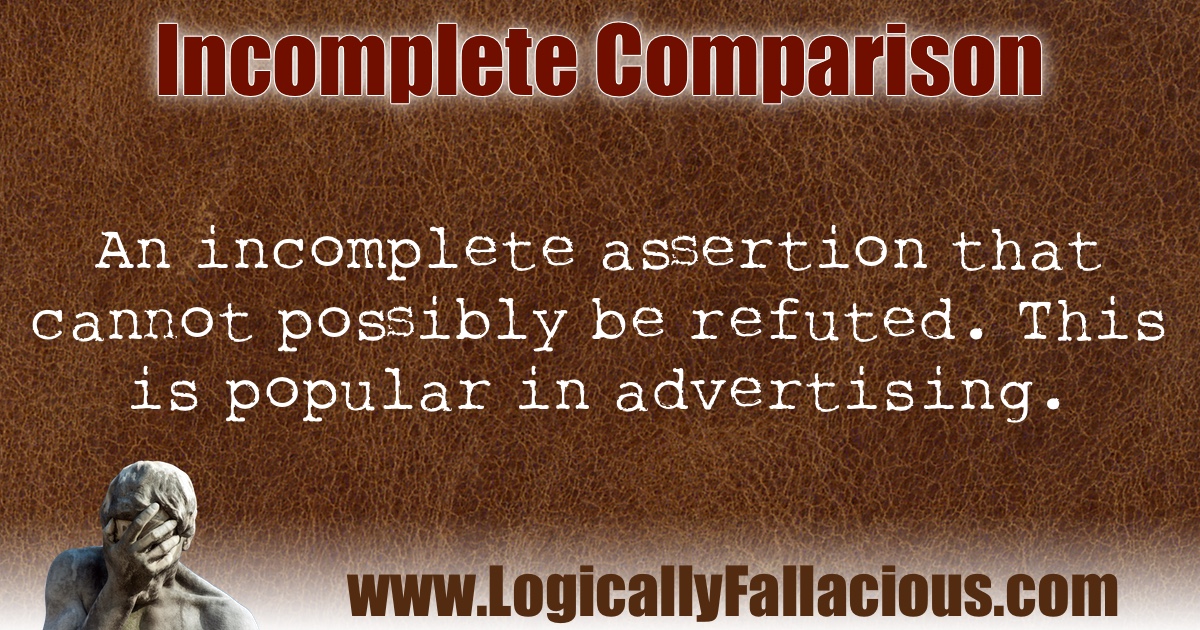Description: An incomplete assertion that cannot possibly be refuted. This is popular in advertising.
Logical Form:
X is said to be superior, but to nothing specifically.
Example #1:
One of my favorite candies, Raisinets, advertises on their package that the product contains 40% less fat. In fairness, they do have an asterisk then in much smaller writing, "than the leading candy bar."
Explanation: The question is, "40% less fat than what?" The hope is that most people won't read the fine print and make their own assumptions. "Oh, this candy bar has 40% less fat than this apple!"
Example #2:
Our widgets cost less and last longer!
Explanation: Cost less than what? Last longer than what? By not specifically saying "our competition" they cannot get in trouble when a competitor shows that their product actually costs less and last longer.
Exception: The terminology used has to be a comparison word or phrase. For example, saying "Bo Rocks!" is great. Not just because I do rock (not musically), but because "rocks" is not a comparison word. There is a complete assertion. Another exception is when the object of comparison is assumed. For example, "Johnny, you need to better in school." Clearly, the implication here is that Johnny needs to improve, that is, do better than he did in the past.
Tip: When possible, read the fine print.

References:
Incomplete Comparisons. (n.d.). Retrieved from http://www.mhhe.com/mayfieldpub/tsw/comp-i.htm
Questions about this fallacy? Ask our community!